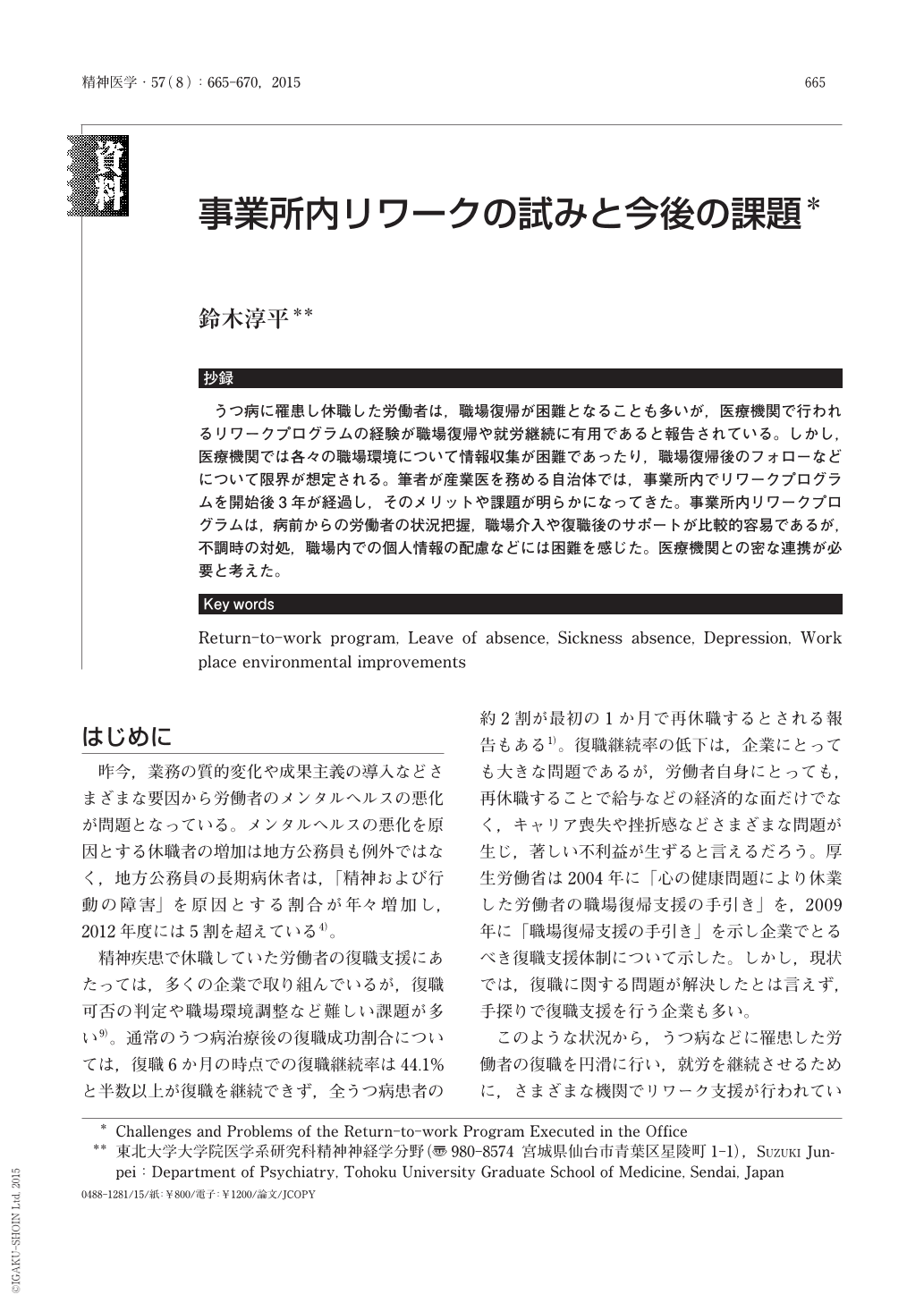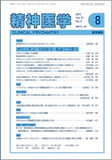Japanese
English
- 有料閲覧
- Abstract 文献概要
- 1ページ目 Look Inside
- 参考文献 Reference
抄録
うつ病に罹患し休職した労働者は,職場復帰が困難となることも多いが,医療機関で行われるリワークプログラムの経験が職場復帰や就労継続に有用であると報告されている。しかし,医療機関では各々の職場環境について情報収集が困難であったり,職場復帰後のフォローなどについて限界が想定される。筆者が産業医を務める自治体では,事業所内でリワークプログラムを開始後3年が経過し,そのメリットや課題が明らかになってきた。事業所内リワークプログラムは,病前からの労働者の状況把握,職場介入や復職後のサポートが比較的容易であるが,不調時の対処,職場内での個人情報の配慮などには困難を感じた。医療機関との密な連携が必要と考えた。
Although it is often difficult for employees who have developed depression and taken a leave of absence to return to work, previous reports have suggested that the experience of undergoing the return-to-work assistance programs implemented by health care institutions can effectively help people return or continue to work. However, in health care institutions, it may be difficult to collect information on the individual working environments and follow-up systems that are in place for employees after their return to work. A local government initiated return-to-work programs three years ago, and its advantages and problems have been identified. By return-to-work program is enforcement, occupational health staffs become easier to understand the conditions of employees before they developed illnesses and provide workplace intervention and other types of support following their return to work. However, individuals in charge of the program had difficulty addressing employees in poor health and attending to personal information in the workplace, thus it is necessary for them to closely collaborate with health care institutions.

Copyright © 2015, Igaku-Shoin Ltd. All rights reserved.


